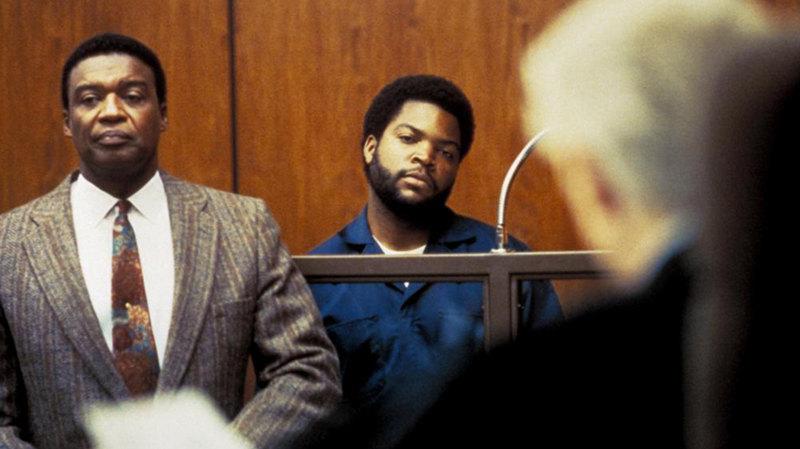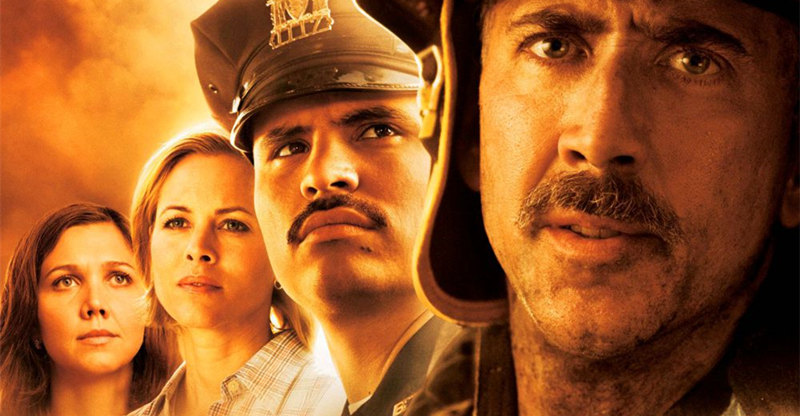If you would have told me that someone could remake/update the 1941 “Wolf Man” movie and not take a comedic or satiric turn, I would have told you that audiences are too sophisticated these days for the filmmakers and actors to pull off such an audacious thing. But with the always edgy, slightly demonic, and predictably unpredictable Jack Nicholson as the wolf man, it actually works . . . almost.
Director Mike Nichols followed his “Regarding Henry” (1991), which starred Harrison Ford as a brain-damaged lawyer struggling to regain his life, with another psychological study. Rather than play up the monster angle, Nichols turns inward again in this 1994 film–so much so that “Wolf” probably has more in common with “The Fly” (1986) than it does the old Lon Chaney Jr. movie. It’s that slow, scientifically-explained transformation of DNA that happened not only to Jeff Goldblum’s character, but to Tobey Maguire’s “Spider-Man” that we see here with Nicholson and his slow descent into animalism that drives this unusual creature-feature. And it all starts with a bite from a wolf and a patch of hair that grows near the wound–a bite that happens on a dark and stormy night when Will Randall (Nicholson) drives over a wolf and stops to investigate.
It’s not long before the full werewolf myth begins to unfold, but that’s not the focus. “Wolf” zeroes in on top editor Randall and the dog-eat-dog (and wolf-gets-revenge) world of New York publishing. It’s fun, actually, to watch Nicholson play a man whose personality gradually goes from meek to aggressive, both in his relationship with co-workers and with women. And it’s especially fun to see people play the usual office politics and piss him off, not knowing (as we do) that old Randall could sprout a full set of canines and tear them a new one at any time. But when the final transformation occurs, his character becomes oddly less interesting. It’s the possibility of the transformation that’s most intriguing, rather than the wolf man episodes themselves–though I have to admit that it’s a nice twist on the legend to have this big bad wolf go after muggers in Central Park. Still, we almost wish that the pendant Randall uses as a talisman to ward off the transformation would work just a little longer. It’s when Nichols gives in to B-movie horror conventions that this otherwise unconventional film loses its bite. Two alpha-males with wolf syndrome, tearing into each other as if they were in a Jack London story? Bo-ring.
It’s vastly more interesting to watch Nicholson chain himself to a radiator so he won’t attack the new boss’s daughter, Laura (Michelle Pfeiffer), while she proclaims her interest in him, than it is to watch the third act carnage. Just as it’s more interesting to watch the office politics that evolves when new publisher Raymond Alden (Christopher Plummer) and the young and devious Stewart Swinton (James Spader) he prefers as his top editor interact with a disgruntled Randall who’s becoming more of a threat every day. And more of a comic threat, too. From “marking his territory” with urine to one-liners that reveal a wolf’s directness more than its cunning, Nicholson has a ball with this role. It’s too bad that Nichols opted for the standard horror ending rather than something that would really and truly transform the horror genre. As it is, he only goes half-way.
“Wolf” gains traction when Nicholson’s character interacts with Pfeiffer’s, and when he tangles with Spader’s character. Those match-ups are interesting to watch, and surprisingly neither Pfeiffer nor Spader gives any ground to Nicholson. They play opposite him with confidence and the same relish that old Jack displays. It’s in these moments when “Wolf” rises above the genre. And frankly, that’s not an easy thing to do.
Video:
“Wolf” is presented in 1.85:1 aspect ratio, and it looks decent in 1080p High-Definition. The AVC/MPEG-4 transfer shows no evidence of tampering or artifacts, and the colors and skin tones look natural. Nothing blows you away, but then again, this is a subdued palette on the whole. There’s just enough film-grain to make for a pleasing effect, and just enough 3-dimensionality to remind us that this is a Blu-ray. Details are especially pronounced in close-ups, like facial hair and skin pores.
Audio:
The featured audio is an English, French, or Portuguese 5.1 DTS-HD MA, with English, English SDH, French, Spanish, and Portuguese subtitles. It’s an okay soundtrack at best, with a front-heavy presentation and not much in the way of sonic dynamism. Sometimes, in exterior scenes, the dialogue sounds as if it’s coming from a sound booth or soundstage, and the amount of ambient sound just isn’t consistent with the atmosphere. But that’s what you get, and it’s not bad, but not great.
Extras:
There are zero supplements, unless you consider BD-Live connectivity . . . and I don’t.
Bottom Line:
“Wolf” makes for a decent night at the movies, but I wouldn’t guess that it would bear repeat viewings. Monster movie fans will probably want to add this to their collections because it’s frankly the best revisionist wolf man movie, and between the 1941 classic and this one there’ve been a lot of stinkers, frankly. So while I give this a 6 out of 10 from a broader cinematic perspective, if you only consider monster movies and their adaptations or remakes, “Wolf” fares a little better.


